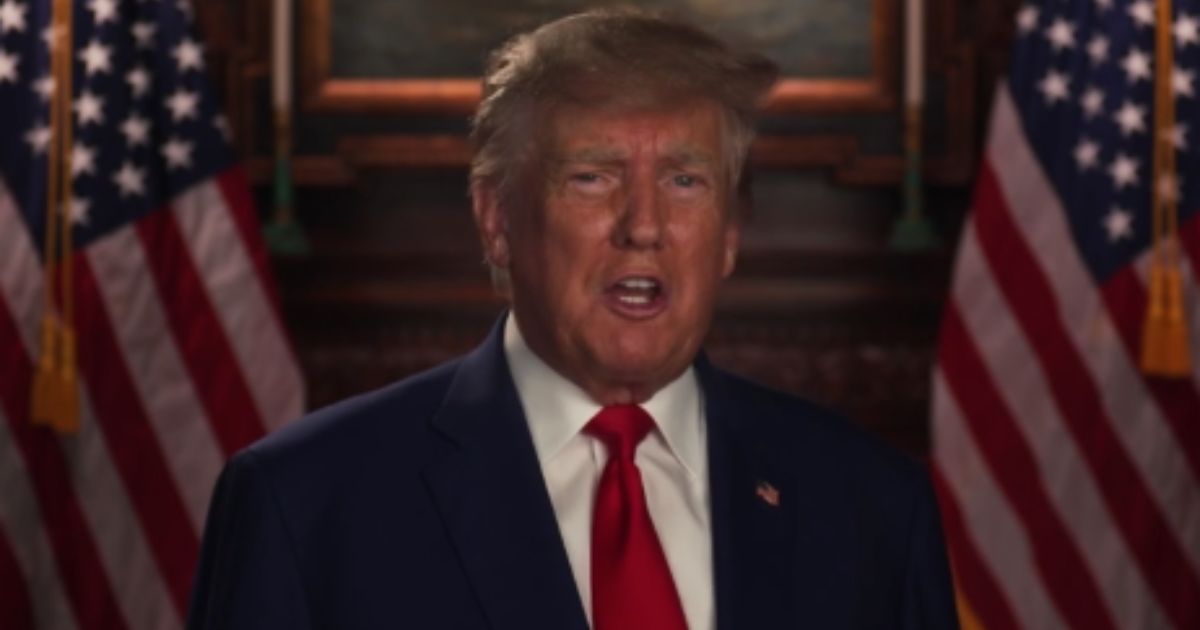Trump warns of bombing Iran over nuclear program discussions
Diplomatic tensions escalate between Washington and Tehran as President Donald Trump's letter to Iran's Supreme Leader Ali Khamenei meets resistance.
According to Fox News, Trump has threatened military action against Iran if the regime does not abandon its nuclear weapons program and return to negotiations, stating explicitly that "there will be bombing" if no deal is reached.
Iranian President Masoud Pezeshkian responded to Trump's overtures with skepticism, emphasizing trust-building measures as a prerequisite for any potential negotiations. While rejecting direct talks, Iranian officials have indicated openness to indirect diplomatic channels, maintaining their characteristic approach to U.S. relations.
Iran's nuclear capabilities raise international concern
The Islamic Republic has dramatically advanced its nuclear program, enriching uranium to 60% purity—dangerously close to weapons-grade levels. Recent United Nations atomic agency reports indicate Iran has accumulated enough enriched uranium to produce six nuclear weapons if the regime decides to take final development steps.
Iranian officials maintain their standard position of avoiding direct engagement while leaving room for backdoor diplomacy. This approach has historically yielded limited success in curtailing Iran's nuclear ambitions.
Experts suggest Tehran's careful response aims to avoid providing justification for military intervention while attempting to exploit perceived divisions within Trump's national security team.
Trump administration pursues dual-track strategy
President Trump emphasized his preference for a diplomatic solution while maintaining a credible military threat. His recent letter to Khamenei represents a significant diplomatic initiative amid rising tensions.
Trump told NBC that alternative measures, including secondary sanctions similar to those imposed during his previous term, remain on the table. The administration appears to be leveraging both diplomatic and economic tools to pressure Iran.
Jason Brodsky, policy director at United Against Nuclear Iran (UANI), suggested Iranian officials may attempt to circumvent experienced Trump administration officials who demand complete nuclear program dismantlement.
Intelligence community assessment sparks debate
Trump's Director of National Intelligence Tulsi Gabbard testified that Iran has not resumed its nuclear weapons program since suspending it in 2003. However, this assessment conflicts with European intelligence reports.
David Albright, a prominent physicist and nuclear specialist, attributes this discrepancy to differing definitions of weapons development between U.S. and European intelligence agencies. European agencies employ updated criteria that suggest active progress toward nuclear weapons capability.
The conflicting assessments highlight the challenges in evaluating Iran's true nuclear intentions and capabilities.
Regional tensions affect diplomatic dynamics
Iran's recent display of its underground "missile city" and massive missile attacks against Israel last year have complicated diplomatic efforts. These aggressive actions have increased pressure on the Trump administration to respond forcefully.
Iranian expert Alireza Nader emphasized the regime's economic vulnerabilities, suggesting that despite public posturing, Tehran desperately needs sanctions relief to prevent domestic unrest. Popular discontent with 85-year-old Khamenei's leadership adds another layer of complexity to negotiations.
The situation remains precarious as both sides maneuver for advantage while trying to avoid direct military confrontation.
Current status and potential outcomes
President Trump's diplomatic outreach to Iran through direct communication with Supreme Leader Khamenei represents a significant attempt to resolve the nuclear crisis through negotiation.
The Iranian regime's mixed response, rejecting direct talks while leaving room for indirect discussions, reflects their traditional diplomatic approach.
The situation continues to evolve as Iran maintains its nuclear program advancement while facing increasing pressure from U.S. economic sanctions and military threats. The outcome depends largely on whether diplomatic channels can bridge the trust gap between Washington and Tehran before military action becomes inevitable.





